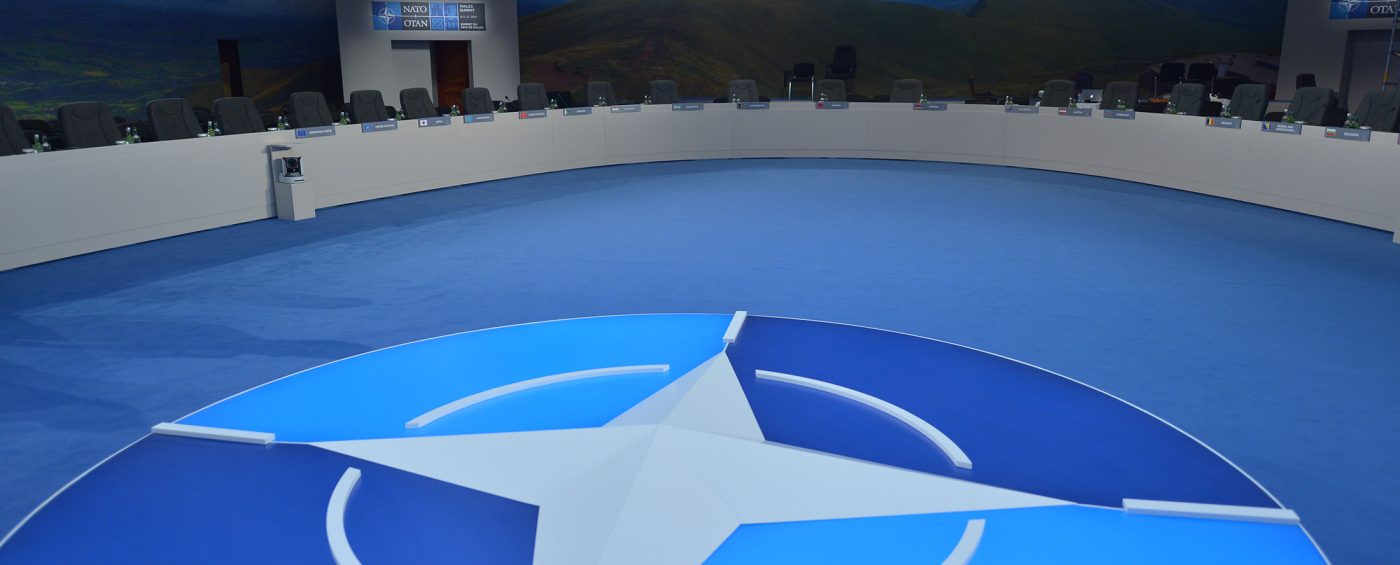The COVID-19 pandemic is upending every aspect of life, from individuals’ routines to international institutions. The public health crisis is, quite rightly, the most immediate concern for citizens and governments. But long after that is brought under control, which it will be, the geopolitical consequences for transatlantic security, democratic norms, and the balance of power between democracies and autocracies, will be felt for years and even decades to come. While NATO and the European Union struggle to coordinate the response, authoritarian adversaries are gaining ground.
The epidemic has highlighted existing vulnerabilities in transatlantic defense and security. NATO—the organization designed to respond to common threats—has struggled to find its role. The alliance’s main mechanism for response to common security threats, Article 5, stipulates that an attack on one is an attack on all allied members. Indeed, some have suggested that NATO should trigger Article 5, bending it to respond to not just terrorist threats—as was the case for 9/11—but for public health threats as well. But Article 5, drafted in the aftermath of World War II, was designed to trigger common defense to an attack with a known and visible perpetrator.
Combatting an epidemic is radically different. NATO is not equipped for such a crisis and its response so far has been too muted. Speaking at NATO Headquarters on March 19, the Secretary General, Jens Stoltenberg, focused on the alliance’s efforts to ensure the safety of personnel while playing a supporting role in ongoing global public health efforts. This will not be enough.
The public health response is also challenging rights that many in Europe have taken for granted. Civil liberties have been drastically curtailed, while passport-free travel within the Schengen zone has largely ended. 12 European countries have already closed their borders to citizens of other European Union members; seven more have implemented border restrictions. The EU as a whole has blocked all non-essential travel from outside the bloc. (On March 20, the United States also closed its border with Canada to all non-essential travel.)
These decisions may have been taken in haste, but the effects will be lasting. Poland’s border closure blocked access for the Baltic States to the rest of Europe leading to humanitarian emergencies, logistical nightmares, and deep questioning about the commitment of allies. The deeper question for shell-shocked citizens and political leaders is whether an increasingly interconnected world is truly “safe.”
The EU has in effect been in crisis mode for well over a decade. The 2008 economic crisis laid bare the weakness in the eurozone’s architecture; the 2015 refugee crisis exposed deep divisions on immigration policies; and Brexit remains unresolved. These upheavals and the resulting tensions stoke legitimate fears and grievances—and provide opportunities for radical voices both on the left and right. The pandemic and its economic woes will give ample fodder to populist voices calling for the re-nationalization of industries, harsh limitations on immigration, and even calls for undemocratic strongman-style leadership.
Authoritarian states are taking advantage of the chaos to exploit societal divisions, sow confusion, and ultimately undermine democratic cohesion. Russia and China have been spreading dangerous disinformation on the nature and origins of the virus. For example, the Russian Channel One broadcaster claimed that the virus only affects Asians and could be used as a bioweapon. Russia also launched an information campaign claiming that the EU is unable to effectively deal with the pandemic.
While such actions are part-and-parcel of the Russian political warfare playbook, the crises have shown how authoritarian states learn from each and adapt. For the first time, China has taken a page from the Russian “firehose of falsehood” disinformation strategy, launching a barrage of misleading and false conspiracy theories to deflect blame. Chinese officials tweeted false statements that the U.S. military spread the coronavirus to Wuhan, China. At the same time, China is launching a diplomatic offensive to position itself as the global leader in helping other countries struggling to respond. Chinese humanitarian aid has arrived (or was promised) in Lithuania, Czech Republic, Italy, Peru, and elsewhere. As the largest producer of critical medical supplies, China has been trying to mitigate the global ire over its gross mishandling of the initial outbreak in Wuhan with its donations (even if small) to affected countries.
The global health crisis will also have long-term ramifications for common security, on everything from joint exercises to field readiness, on the ground day-to-day operations, and coordination among allies. Moreover, this pandemic will likely not be our last. The to-do list is daunting. NATO should buttress its military strategy with a new focus on resilience, including a rethink of what “counts” toward the defense-spending benchmark of 2 percent of GDP. The EU should show that it still has the capacity to enforce rules and protect weaker countries against the headstrong and ill-considered actions of stronger ones. The United States should exercise and highlight its unique capabilities in humanitarian aid and global leadership.
Failing decisive and visionary actions, a perfect storm looms, as democracies experience political, social, and economic strains of a kind not experienced since the 1940s, as multilateral organizations prove ineffective or irrelevant, the United States abdicates its position as the first responder in global emergencies, and adversaries act decisively to exploit the West’s disarray. The steps taken in the coming days and weeks to respond to the pandemic and mitigate its fallout will determine the trajectory of democracies for decades to come.
Common Crisis is a CEPA analytical series on the implications of COVID-19 for the transatlantic relationship. All opinions are those of the author and do not necessarily represent the position or views of the institutions they represent or the Center for European Policy Analysis.
Europe’s Edge is CEPA’s online journal covering critical topics on the foreign policy docket across Europe and North America. All opinions are those of the author and do not necessarily represent the position or views of the institutions they represent or the Center for European Policy Analysis.





